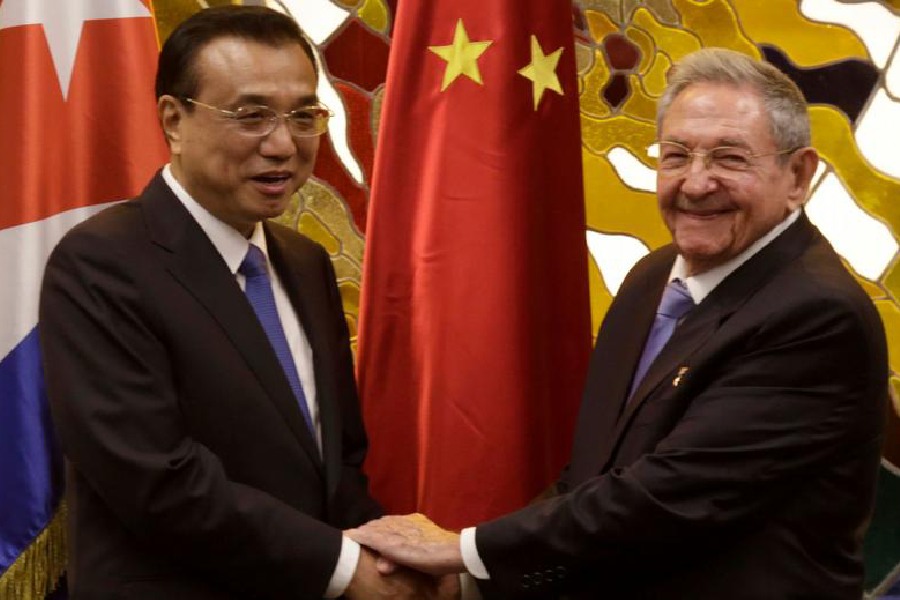The Cuban and US governments have both denied a Wall Street Journal report saying Havana and Beijing agreed to establish a Chinese electronic eavesdropping facility in Cuba, some 100 miles (160 kilometers) south of Florida.
If true, a spy base with such proximity to several US military bases in the southeastern region of the country would allow Beijing to collect electronic communications and monitor ship traffic, the newspaper said.
The agreement was reached in principle, The Wall Street Journal said, in exchange for "several billion dollars" for the cash-strapped Latin American country.
Cuban Vice Foreign Minister Carlos Fernandez De Cossio said the report was a US fabrication, describing it as "totally mendacious and unfounded."
He stressed his country rejects all foreign military presence in Latin America, including the bases maintained in the region by the US.
What did the US government say?
The White House said the report was "not accurate." White House National Security Council Spokesman John Kirby told the Reuters news agency the US still had "real concerns" regarding China and Cuba's close relationship, adding that it was being closely monitored.
US Defense Department spokesman Patrick Ryder also dismissed the report.
"We are not aware of China and Cuba developing a new type of spy station," he said.
However, members of the Senate Intelligence Committee, who are often briefed on important security matters, said the report left them "deeply disturbed."
Democratic Senator Mark Warner and Republican Marco Rubio stressed in a statement the US had to respond to China's "ongoing and brazen attacks on our nation's security."
"We must be clear that it would be unacceptable for China to establish an intelligence facility within 100 miles of Florida and the United States," they added.
What is the historical context?
Tension between Washington and Beijing has been on the rise lately, with issues such as Taiwan and economic competition souring relations.
Earlier this year, the US shot down what it says was a Chinese spy balloon above its skies. Beijing denied the balloon had surveillance purposes.
Cuba, like China, is a communist state with historic disagreements with the US.
In 1962, Cuba became a potential location for what was feared to be the most direct confrontation between Washington and Moscow during the Cold War.
The US rejected the Soviet Union's positioning of missiles on its Latin American neighbor's soil, triggering what came to be known as the Cuban Missile Crisis.
The crisis was seen as the closest both countries have come to threatening to use their nuclear arsenal.










